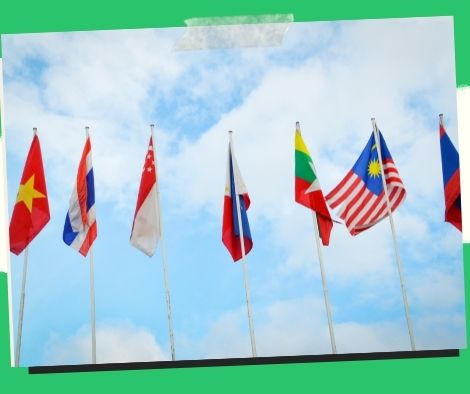
Australia tells ASEAN: Take into account third-party rights in COC negotiations.
The Association of Southeast Asian Nations (ASEAN) was urged once more by Australia on Wednesday to develop a code of conduct (COC) for the South China Sea that would not affect the rights of outside parties.
According to visiting Australian Foreign Minister Penny Wong, Australia, a non-claimant state, has a stake in the vital sea route where trillions of dollars worth of trade flow through every year.
In an interview with CNN Philippines, she stated, “We respect ASEAN centrality, and they have a right to discuss these issues as an entity.”
“All we are saying is that we would urge states not to agree to anything that lessened their rights as a party with an interest in the South China Sea and international law, as do many other parties.”
Australia has previously stated that any document that affects the current rights of states under international law to practice freedom of navigation and conduct military drills with allies in the region “would be a cause of concern for Australia.”
China and the ASEAN nations are creating the COC to replace the 2002 Declaration of Conduct on the South China Sea with an improved and more binding document. The agreement is anticipated to help manage tensions and lower the likelihood of clashes in the region where China has conflicting territorial claims with the Philippines, Brunei, Vietnam, and Malaysia, despite not being intended to end the maritime dispute.
President Ferdinand R. Marcos Jr. asked his fellow leaders to strive for the COC’s early conclusion during last week’s ASEAN Summit. Wong added that Canberra and Manila would cooperate to advance a region that is “stable, peaceful, and prosperous.”
“We all desire a society where laws make it easier to use power. And it’s through that that nations may continue to exercise their right to independence, according to her.
She also highlighted Australia’s ongoing backing of the nation’s 2016 arbitral victory and defense of its national interests.
And we will remain that way because, in the end, states similar to us believe that we are not a great power. Some refer to us as a middle power, but we desire a space where standards and laws still hold true,” Wong added.
“We don’t want a region so heavily dominated that other nations cannot act independently. Thus, the UN Convention on the Law of the Sea is significant to us.
Save/Share this story with QR CODE
Disclaimer
This article is for informational purposes only and does not constitute endorsement of any specific technologies or methodologies and financial advice or endorsement of any specific products or services.
 Need to get in touch?
Need to get in touch?

We appreciate your reading. 
1.) 

Your DONATION will be used to fund and maintain NEXTGENDAY.com
Subscribers in the Philippines can make donations to mobile number 0917 906 3081, thru GCash.
3.) 
4.) 
AFFILIATE PARTNERS

World Class Nutritional Supplements - Buy Highest Quality Products, Purest Most Healthy Ingredients, Direct to your Door! Up to 90% OFF.
Join LiveGood Today - A company created to satisfy the world's most demanding leaders and entrepreneurs, with the best compensation plan today.

 Business, Finance & Technology
Business, Finance & Technology

 Business Technology, Finance Technology & Information Technology
Business Technology, Finance Technology & Information Technology





